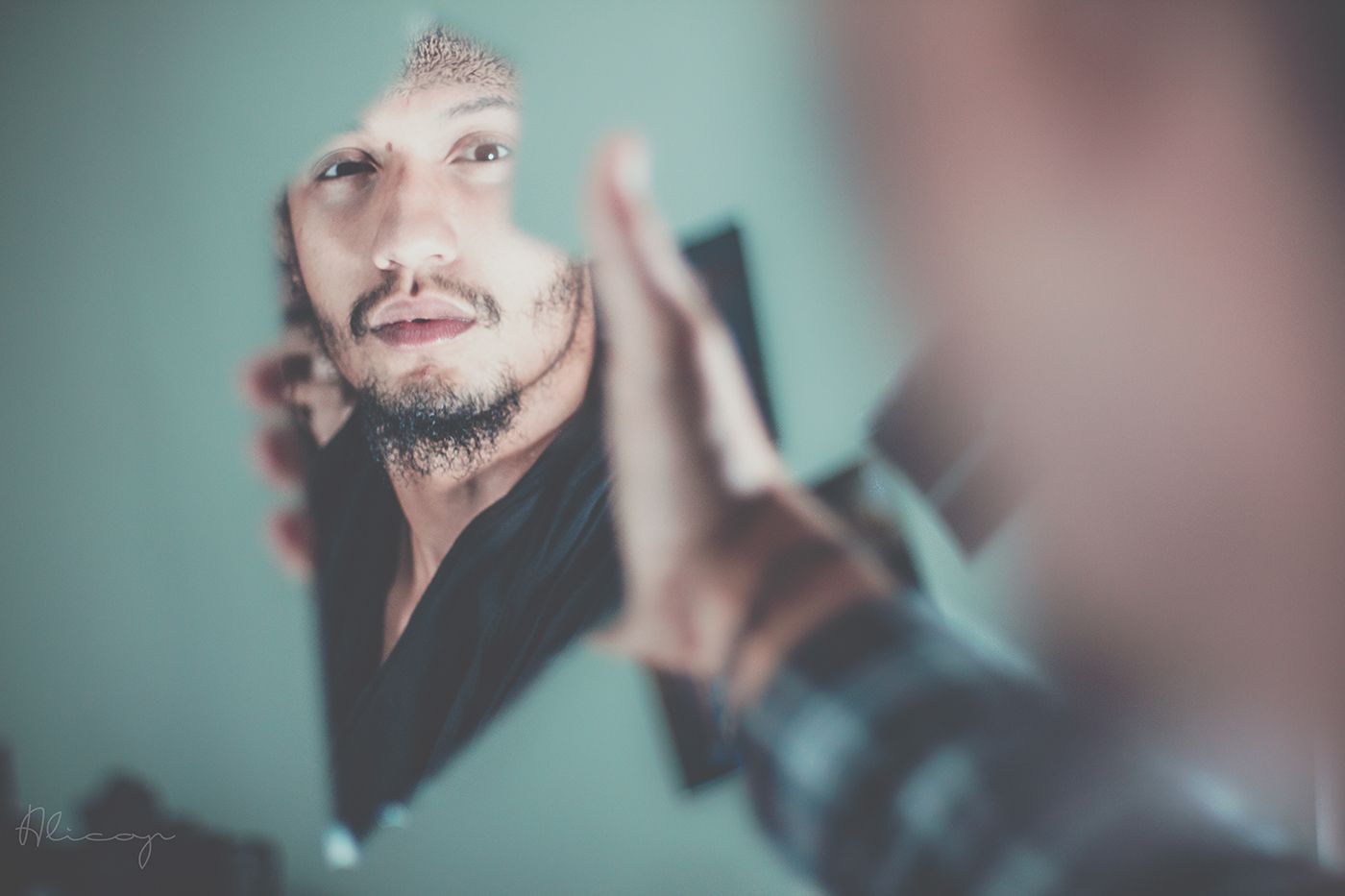Imagine you are in a Broadway theater doing the solo dance performance. 1000s of people are watching you. Everybody's eyes are fixated with full admiration it's as if they've found a previous treasure. What kind of person are you in this image?
Having an excellent muscle and skill is obvious. What we don't talk often enough is the psychological trait.
The trait for bad dancers are easy to come up with - unconfident, nervous, sensitive... They would never make it to the theater performance.
To explore the full possibility, we want to explore the furtherest end of the positive trait. And that is narcissism.
Today, I will teach you how to adapt narcissist mentality so you can grow to be an exceptional dancer.
Are you a narcissist?
The term narcissism is thrown out a lot these days, especially in a negative way. I often hear "narcissistic boyfriend" or "5 signs you're dealing with narcissist". They really have bad reps. But, is it truly that bad?
In fact, compared to 5 years ago, the word narcissism appears 2-3 times more in the Internet. There's definitely a trend here.
Psychotherapist, Amy Morin from Psychology Today defines narcissism with 7 traits:
1. He makes it clear he knows everything.
2. He insists on being the exception to the rule.
3. He project an image of superiority.
4. He makes a great first impression, but quickly wears out his welcome.
5. He boosts his egos by implying others are inferior.
6. He assumes everyone adores him.
7. He puts his own feelings ahead of other people’s needs.
They all sound terrible, don't they? You probably know 1 or 2 people with those characteristics in your life. They drive you crazy all the time and just makes you feel miserable at the end of the day. You definitely don't want to be hanging out with them.
But, let's not jump into the conclusion yet. We shall explore the opposite of those traits. What would narcisist-zero person look like?
1. He make it clear He doesn't know anything.
2. He insist on being the obedience to the rule.
3. He projects an image of inferiority.
4. He makes a terrible first impression, but quickly rebuilds his welcome.
5. He reaffirms his inferiority complex by implying others are superior.
6. He assumes everyone hates him.
7. He puts others' feelings ahead of his own needs.
Except the last point, the traits 1-6 looks deadly. Now, this guy sounds timid, shy, negative, and even pathetic. There is no edge or liveliness or passion.
Which guy's performance would you be excited to see? Unless it's an entertainment piece, I know I wouldn't. Now comparing the both extremes, being narcissistic doesn't sound so bad, if you want to impress people with your dance.
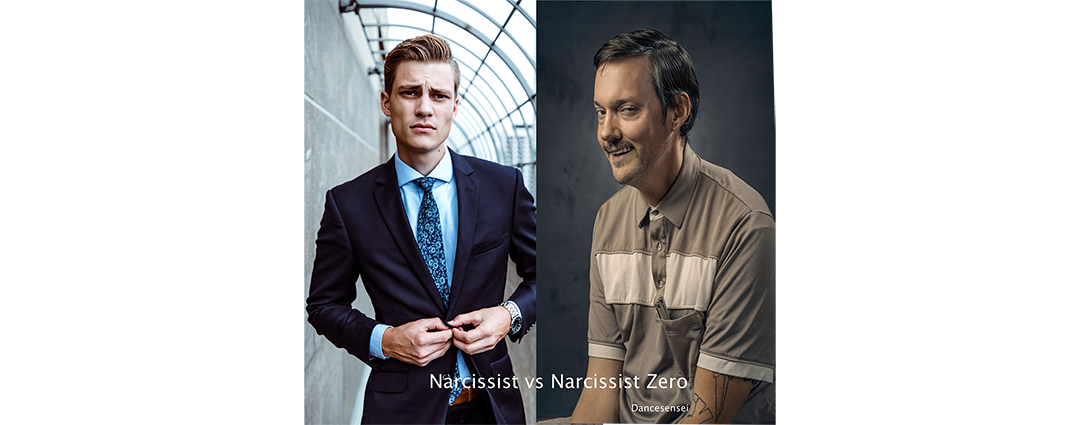
Psychological characteristics for exceptional dancer
Now that we've covered what narcissist looks like, I want to talk in relation to an extraordinary dancer. What type of characteristic is needed to dance?
Makes it clear you know the song
Dancing is a tag of war between music and your body. You ride on music. But sometimes, the beats are too fast to catch up. Nailing fast pace beats needs healthy muscle build-up, and that takes time.
In the meantime, you need to learn how not to panic and be able to jump back into the music right after.
What experienced dancers do in choreography is even when they mess up the routine for a split second, they are quick to get back on their feet. Their face looks calm as if nothing has ever happened. They are the master of poker face. Most of us do not even realize there have been a mistake. It's almost like a glitch in a TV signal.
They can do this because they know the song back and forth. And they never lose track of the groove.
So next time you lose the beat or feel the music is too fast, calm down. Music can wait.
Insist on being an exception to the rule
No matter how great you master moonwalk, you'll be a second class Michael Jackson. While it's a great way to learn and get better at certain steps, you need to add your own twist to become original. You have to break the rule.
One skill that is so undermined among dancers is a use of facial expression. People are so busy focusing on the body movement that they look monotonic in their faces.
- Excitement
- Anger
- Sadness
- Content
- Playfulness
Those are the facial cues people instantly pick up. Even if you are dancing in a group, you will stand out as "that happy person that I enjoy so looking at!" The best part of it is it's really easy to learn it. You don't need 1000 hours of practice yet so many guys even the experienced ones are not utilizing it. Facial expression is a sure way to add a unique twist to your performance.
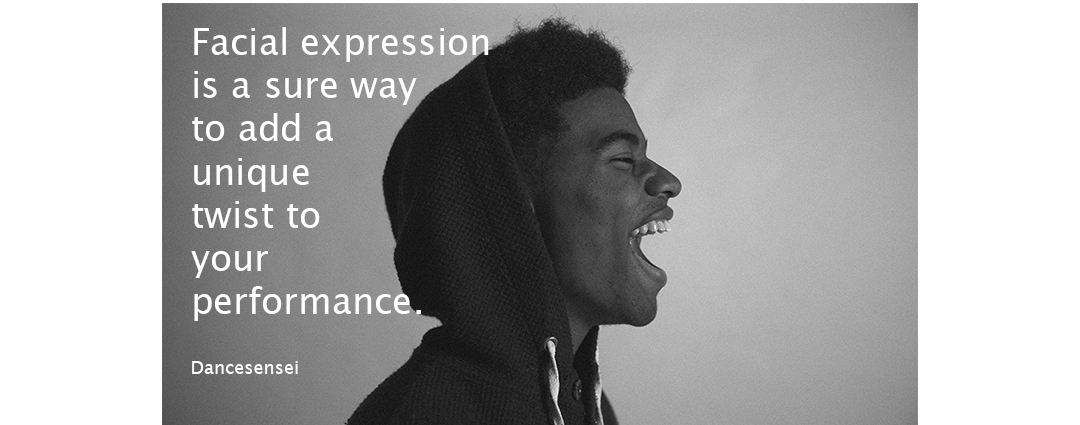
Project an image of superiority
Are you better than everyone else?
If the answer is yes and you have no practice hours to backup, you are only implementing yourself a big time bomb that doomsday when you realize you're a piece of crap and nobody cares about you. I'm being harsh because I was like that in the early days of my teenage days. Just full of nose.
The fact that you are here on Dancesensei tells me that you are not full of nose. You are genuinely looking for an inspiration and a way to get better. That's the great mentality to have in a long run. You will look back and be surprised how far you've come. You've actually become better at everyone else.
But when it comes to on-stage, things are different.
You have to feel absolutely special about yourself from the very beginning. You're commanding the audience attention. People are staring at you because you have something that they don't have. For 30 seconds, you have to be the best dancer in the world. At least, that's the illusion you want your audience to believe. That is the sweet magic of live stage performance. And you do that through an attitude of absolute superiority.
Make a great first impression
Former Apple evangelist, Guy Kawasaki tells that meeting investors is all about Tinder and not about Match.com. There is no long-term relationship building or rational calculation in investment business. It's all about the first impression of founders, ideas, and the way they talk. It's the Tinder world.
That concept also applies to dance evaluation.
The moment your live performance starts, people are judging you if you are worth their time. Remember no one is obligated to watch your performance. They have paid the ticket to watch your performance? It doesn't matter. If they conclude you are not worth their time in the first 10 seconds, checking Instagram feed becomes way more entertaining than your performance.
In YouTube, things get much worse. The click away option is so nearby. It takes only 5 seconds to decide your entertainment value.
How to give the best first impression? A lot have to do with your body language and how you carry yourself around the surrounding. Those takes time to master.
What you can start today is to wear the best outfit possible. Unique ones are even better. Give out the impression you're different and deserve their attention.
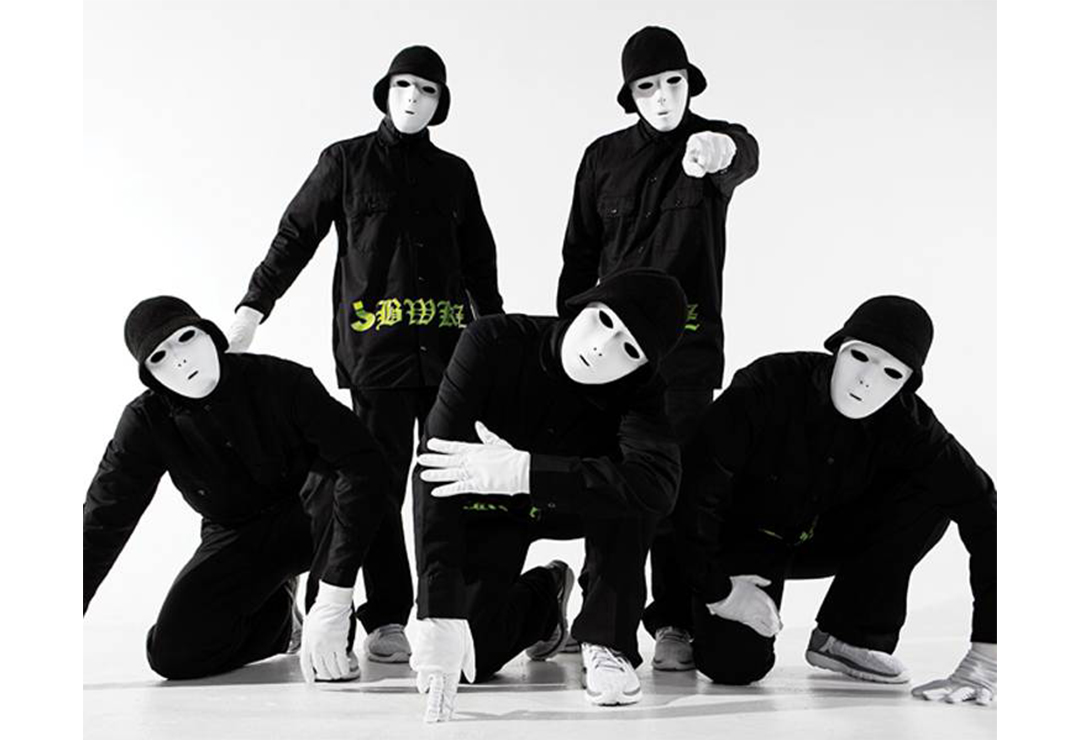
Boost your ego by implying others are inferior
I always wondered why bboy is so combative in the battle. They trash at each other all the time from kick, punch to air wank.
They themselves are enjoying the adrenaline rush in the heated moment. But why do we, as the audience, enjoy so much of them going at each other's throat. If it's just the airflare we want to see, let them play quiet by having a ballerina show.
The same goes for any kind of martial art - MMA, boxing, muay thai, jujutsu... A human battle is just so enjoyable to watch.
The reason I have figured out now is they are trying to win their ego by domination. It is almost like the will of power to win over the other guy. And bystanders love to be the judge and observe that process.
At the end of the game, the winner takes it all. They command the title, respect, attention, and fame. This is the natural law of our animal kingdom. We love watching people fight for their ego.
In a competition setting, make sure you are commanding higher ego than other performers.
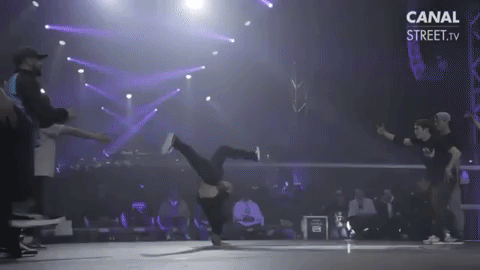
Assume everyone adores you
When I visited Maya pyramid in Mexico years ago, I was with a local tour guide. He described, the pyramid structure is precisely made so that when king claps the hands from high above, people on the ground hear it as if a bird is crying out loud. At the time, the experience came out magical for the ruled and they admired the king even more.
Today, this artificial admiration set up exists everywhere. Take Beyonce concert as an example. Everyone is looking up and dying to hear every word that comes out of their mouths. Cheer is almost guranteed. If you're standing there looking bored, that's your own fault for not riding the crowd. No matter how thankful Beyonce might say to her fans, she knows she's the one being adored.
The same goes for us. Most dance performance from small to big happens on the high up stage. And you have to think yourself as a source of everyone's admiration.
If you start adoring the audience instead, here's what will happen.
Do you remember highschool presentations? One kid is standing in front of the whole class. And he becomes so shy that he loses his speech. The whole room goes dead silent. You are sitting there feeling extremely uncomfortable too even though you have done nothing wrong. It's like the class's temperature has dropped to Alaska.
Your audience is there to sit back and adore you for the whole performance duration. If you don't give it, they will run away as quickly as possible.
Put your own feelings ahead
The millionaire comedian, Louis C.K., said in one interview that there are always 1000 that are not laughing at his joke. That's true even though they've paid expensive tickets to be there and his decades of experience and fame under his belt. Those guys always stick out to him in mind even today.
I'm sure he was partially joking. But the lesson is clear. As a performer, it's very tempting to get bogged down by those who do not understand your performance. If you have 10 person crowd, there will be at least 1 that's just not paying attention to you. He will look bored like there's no tomorrow. And the moment you catch that unprepared, you become nervous, unconfident, shy, and overly sensitive. You can no longer concentrate at what you are best.
The typical pitfall I see in dancers as a result is they become tricksters. Every 10 seconds, they need to throw in tricks to wow the audience. It's ok to have heightened moment. But many of them get never good at the actual dancing - the part about riding the music. They do the flip, walk walk walk. Flip, walk walk walk. It's like a little trainee dog. It becomes so boring and repetitive. Maybe you find it entertaining for the first time. After the third flip, you are already on your way out.
Instead, what a great dancer does is to express emotion with body movement. And hope that other people understand it through common music. Once you are given the permission to perform, it becomes all about your emotion.
Narcissist Switch
We've covered the psychological mindset of exceptional dancers today.
I'm not suggesting you turn into a narcissist 24/7. That would me you lose all your dance buddies. The key difference is learning to turn your narcissist switch on and off at your will. In stage performance, you only have a limited amount of time. In that short time frame, it's crucial to show 100% confidence and superiority. You will turn that switch on to be an absolute narcissistic megalomaniac. That is a sure first step to make yourself worthwhile watching for.
